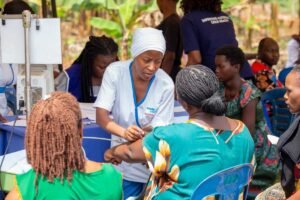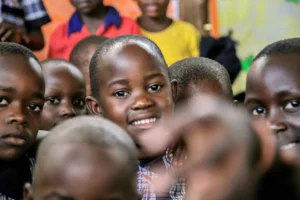Food insecurity is a pressing challenge in many Ugandan communities, and Kabubbu has not been immune. Recognizing the direct link between nutrition and overall development, Kabubbu Development Project launched food programs designed to ensure no child or family is left hungry.
At the schools, daily meals are provided to students. For many children, this is the most reliable source of nutrition they receive. Having consistent meals not only combats malnutrition but also improves attendance, concentration, and performance in the classroom. Parents are reassured knowing their children are well fed while pursuing an education.
Beyond feeding, the project invests in sustainable farming. Community members are trained in modern agricultural techniques that maximize yields while preserving soil fertility. Crops such as maize, beans, and vegetables are grown both to feed families and to supply the schools. Small-scale livestock rearing has also been introduced, diversifying diets with protein sources.
Food supplies are carefully managed to cover both immediate needs and long-term planning. In times of scarcity, the project distributes dry rations to the most vulnerable households. In parallel, training workshops on post-harvest handling, food storage, and kitchen gardening empower families to take control of their nutrition.
The ripple effect is powerful. Children with enough food grow healthier and learn better. Parents with stable food supplies face less stress, enabling them to focus on livelihoods. The community as a whole becomes more resilient against shocks such as drought or market price fluctuations.
Kabubbu Development Project’s food programs highlight a simple but profound truth: when people are nourished, they are equipped to thrive. By fighting hunger with sustainability in mind, KDP is securing not just meals, but futures.



